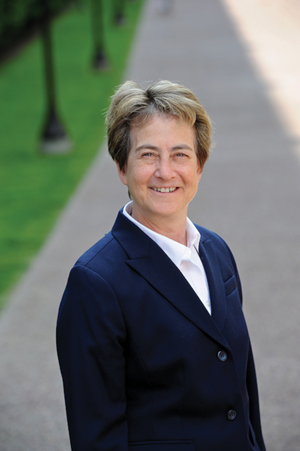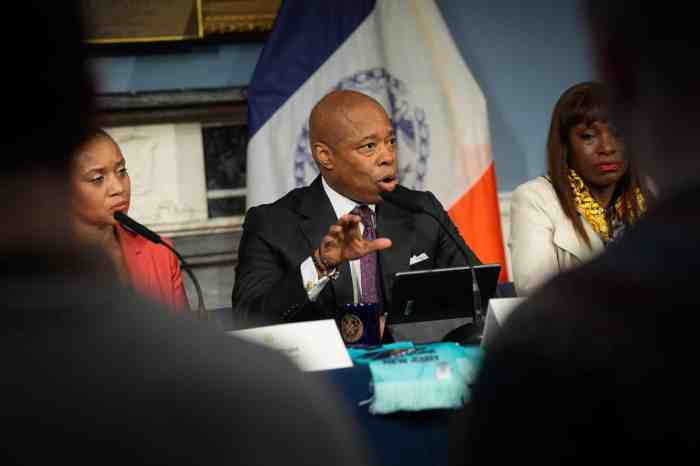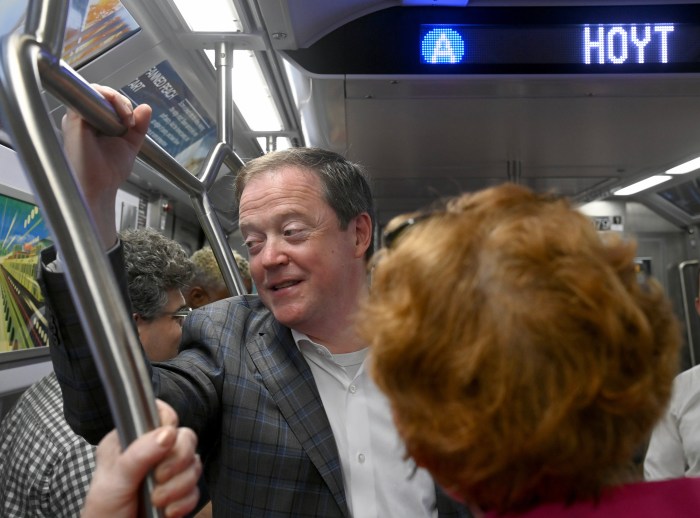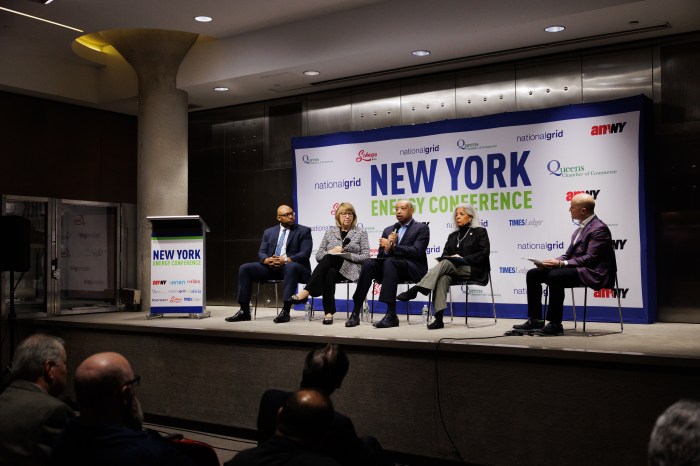BY DEBORAH J. GLICK | For progressive New Yorkers who fully embrace and believe in the separation of church and state, the national movement to erode that article of faith in our secular country is deeply disturbing.
We are always looking at Congress or other states, but we should be paying more attention here at home. We may be incredulous over the recent congressional stalemate over a sex-trafficking bill because of the inappropriate inclusion of an anti-abortion clause, which delayed the confirmation of Loretta Lynch for U.S. attorney general.
We are shocked by the extreme measures in state legislatures across the country and extremist proposals from citizens, including an initiative in California that calls for the death penalty for L.G.B.T. Californians simply for being gay. We’re stunned by the number of bills to limit or outlaw methods of contraception in almost every state of the union.
But as New Yorkers, we feel immune to these extremist, religious-based initiatives. That sense of security emanates from a history in which the Assembly Democratic majority has protected basic rights from sectarian attacks. In view of the passage of marriage equality in New York, there appears to be reason to believe that our state has moved into this new century without any backsliding.
Not so fast. It wasn’t that long ago when a professed pro-choice Governor Pataki vetoed a bill that would have made emergency contraception available over the counter, despite the fact that then-Republican Majority Leader Joe Bruno got the measure passed in a Republican-controlled state Senate.
For the past few years, the Women’s Equality Act, a package of bills combined by Governor Cuomo out of individual legislation that was repeatedly passed by the Assembly, was rejected by the state Senate because one part of the package would codify Roe v. Wade in state law.
As the Assembly moves forward passing individual parts of that package, we approved a reproductive-rights bill, without any indication that the state Senate will join us in the 21st century to protect the right of women to make their own reproductive-health decisions regardless of any future changes in the U.S. Supreme Court.
But far more insidious is the current fight over the so-called Education Investment Tax Credit, disturbingly named so its shorthand will be the EITC. The real EITC, the Earned Income Tax Credit, provides a tax credit for the working poor. But this education initiative allows for a tax credit — different from a tax deduction — for charitable donations to religious and private schools through a voucher system for scholarships.
This year’s budget included $100 million for this purpose. It allows for a credit up to $1 million, which means wealthy folks can direct resources to scholarships for private and religious schools and, in effect, have the state pay for it. Contrast this $100 million to the $75 million the state directed to assist public schools — specifically, those with a 10-year history of poor performance — to assist in their turnaround.
The lobbying by religious institutions, primarily Catholic schools and Orthodox yeshivas, has gained some support in the Assembly majority.
This is reminiscent of the struggle in New York City around the use of public school buildings for religious services on weekends. There were many surprising supporters for this unusual breach of the separation of church and state, which recently was deemed precisely that by the Supreme Court. So, it isn’t so surprising that some of the same state legislators, as well as a few others, feel pressure to advance this new education tax credit.
Those of us opposed to this new initiative believe it undermines public education by diverting resources to private and religious schools through a voucher program. Anyone can donate to these schools. However, a tax credit, rather than a tax deduction, is a very different approach.
If you are concerned, share that concern with friends and family and ask them to find out where their state Assembly and Senate representatives stand. Let’s protect both public education and the basic principle of separation of church and state.
Glick is assemblymember, 66th District (West Village, Soho, Noho, Hudson Square, East Village, Tribeca, Civic Center)


















